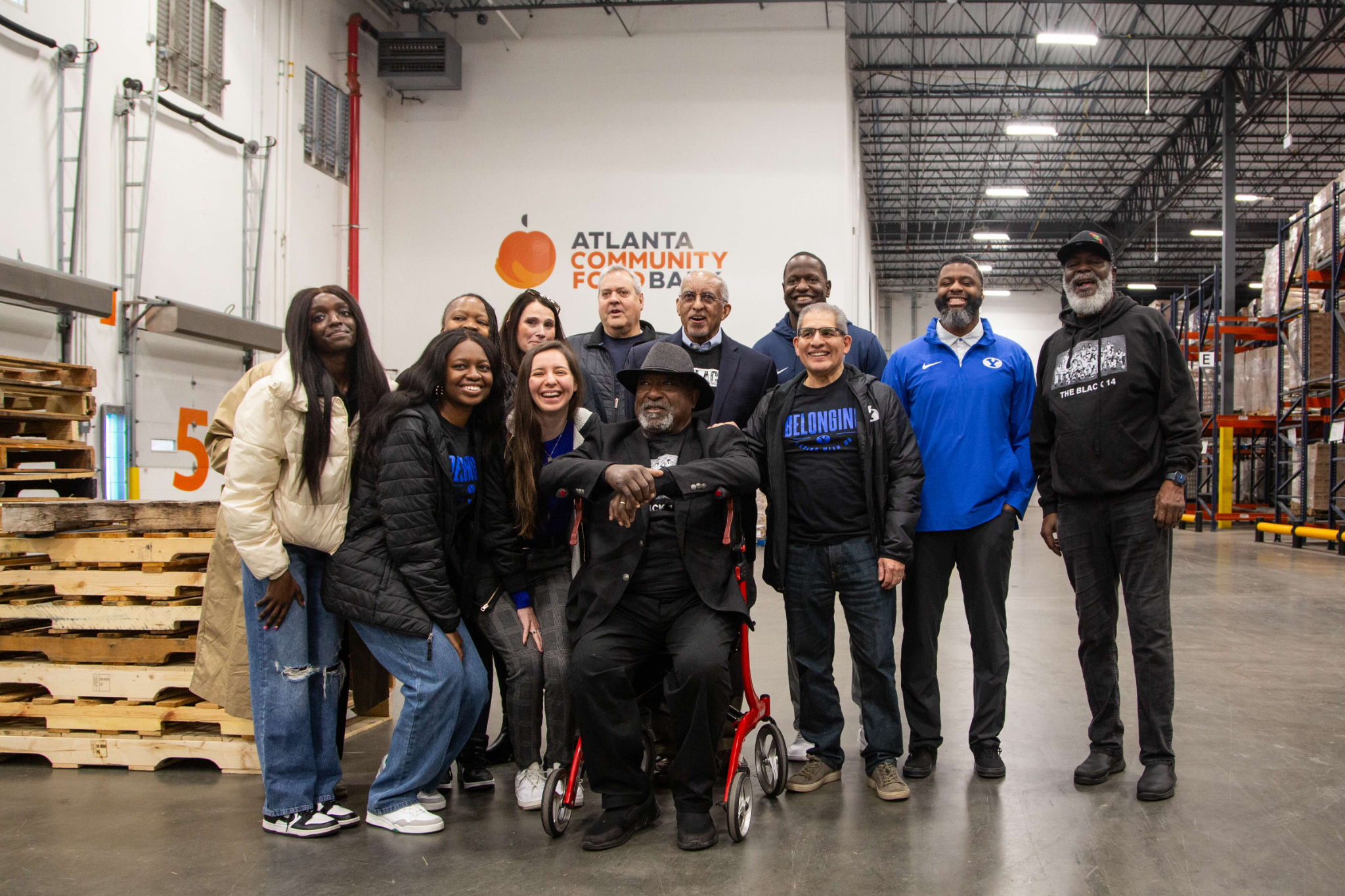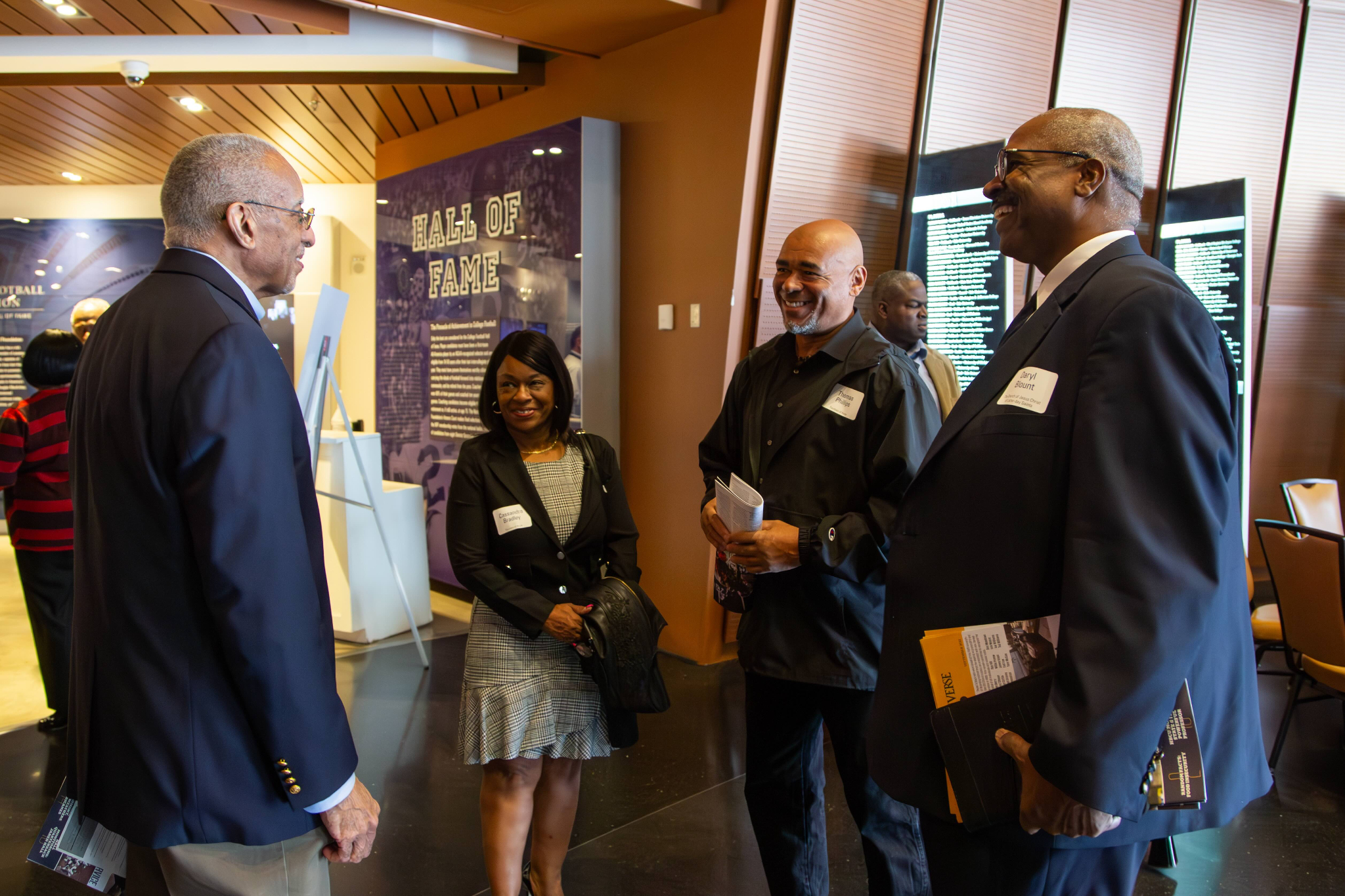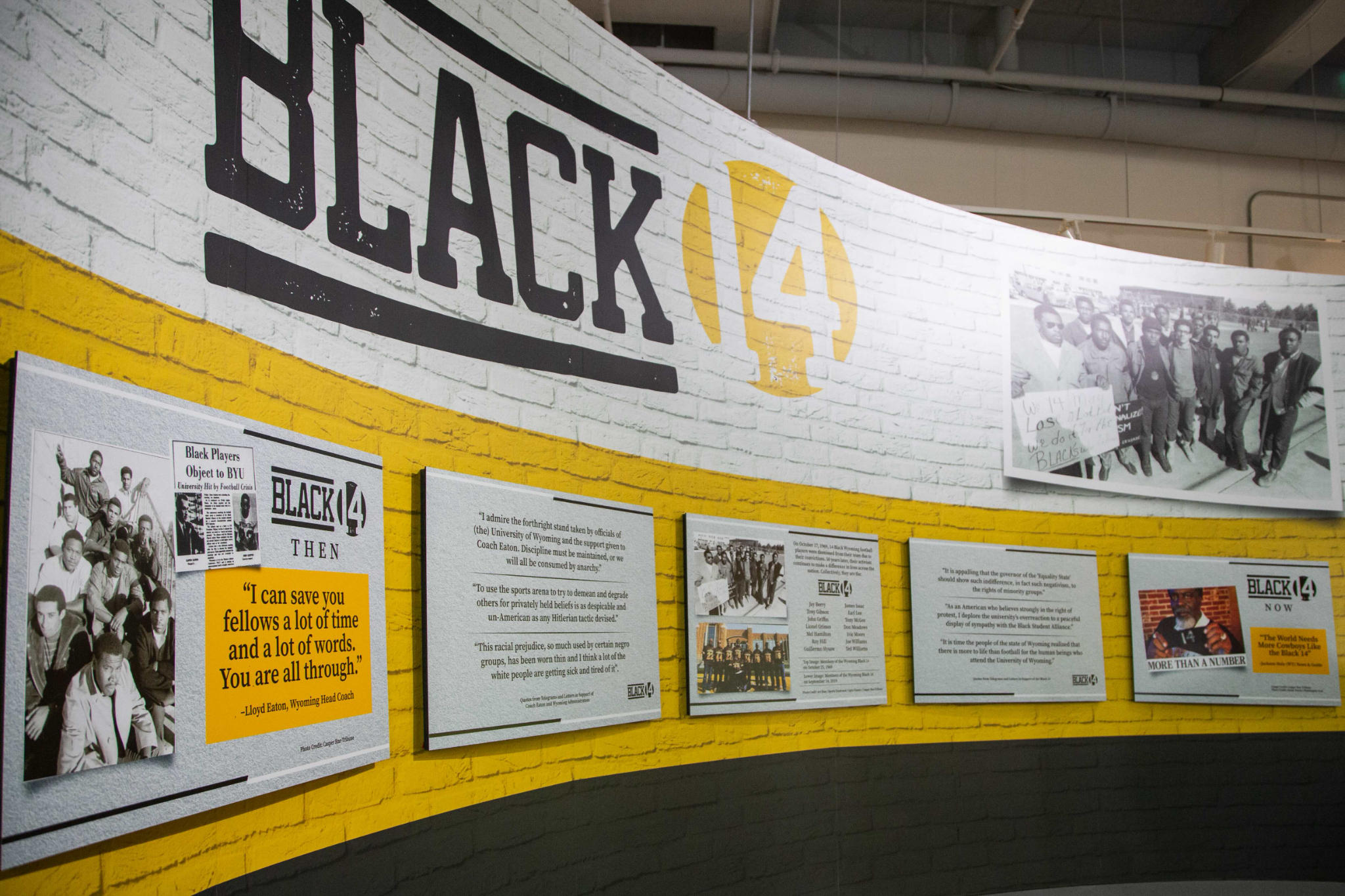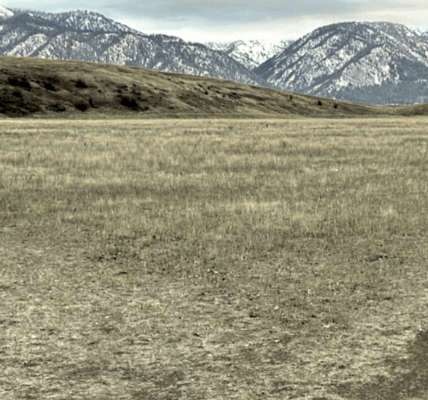
• The Church of Jesus Christ partners with Black 14 in food donation to Atlanta Community Food Bank
To kick off its observance of Black History Month, the College Football Hall of Fame honored the Black 14 with a two-day event February 5-6, 2024 in Atlanta, Georgia. Local leaders of The Church of Jesus Christ of Latter-day Saints and representatives from Brigham Young University participated.
The Hall of Fame invited Mel Hamilton, John Griffin and Tony McGee of the Black 14 to join the event, which included a food donation in partnership with the Church of Jesus Christ and screenings of a short film about the Black 14 produced by BYU students.
“It’s an honor for us to be here and be recognized for what we did,” John Griffin said of being at the College Football Hall of Fame. “It was a tragedy that’s been turned into philanthropy.”
The former University of Wyoming athletes were three of the school’s 14 Black players dismissed from the team in 1969 prior to a game against BYU after asking their coach if they could protest a policy of The Church of Jesus Christ of Latter-day Saints that prevented Black men from priesthood ordination. The Church’s policy was changed in 1978.
Since then, the group has reconciled with the University of Wyoming, BYU and the Church. In 2019, the surviving members of the Black 14 started the Black 14 Philanthropy to give back to the community and help those in need. They began collaborating with the Church in 2020 to donate food to food banks around the country.
“I want people to realize that revenge is not going to get you anywhere,” Hamilton said. “Hate is not going to get you anywhere. Try to think of a way to turn that bad incident around to the benefit of others. That’s my takeaway.”

On Monday, Feb. 5, the Black 14 donated 40,000 pounds of nonperishable food items to the Atlanta Community Food Bank through a collaborative effort with the Church.
Kenny Hill, chief supply chain officer at Atlanta Community Food Bank, spoke about the value of partnership: “We’re here in February — Black History Month — and we’re celebrating the connection and a partnership between The Church of [Jesus Christ of] Latter-day Saints and the Black 14, who made a stand back in the ’60s, a stand for what they believe is right. And it’s good to see others come alongside when others make a stand for what’s right.”
“We look forward to future engagement because we know that as long as there are people in need, there will be a cause,” Hill said. “And we’re all called to be involved in a cause greater than ourselves”
Elder M. Andrew Galt, Area Seventy in the North America Southeast Area, said the donation is about more than food. “I hope that it lets people know that we care about all of God’s children. There are people out there that are struggling. And when we come together with different groups like the Black 14, I think it shows really a story of redemption, of hope, of repentance, of just an outlook of a very good future.”
On Tuesday, February 6, the College Football Hall of Fame invited the public to a screening of the short film “The Black 14: Healing Hearts and Feeding Souls,” produced by BYU journalism students in 2022. After the film, Hamilton, Griffin and McGee participated in a panel discussion moderated by Dennis Crawford, a historian and exhibit designer at the Hall of Fame.
A similar panel event took place Monday night at the Auburn Avenue Research Library in Atlanta, moderated by Stephanie Dunn, a professor at Morehouse College and chair of the Cinema, Television and Emerging Media Studies Department.
McGee said he is grateful for the Black 14’s partnership with the Church, what he has learned about the past, and the hope he has for future generations. “I only had one side of the story,” he said. “Now, when I look at this, I get an opportunity to see both sides, and they get an opportunity to see. And both sides see what we did wrong, and both sides are trying to correct it.”
In reference to the saying “Do you want to make a point or do you want to make a difference?” McGee added, “This is making a difference. And that’s what makes me happy about it.”
The Black 14’s story is showcased in a temporary display on the second floor of the Hall of Fame during February. The display — presented in collaboration with the Black 14, Auburn Avenue Research Library and BYU School of Communications — features infographics and artifacts such as a Black 14 armband and banner, a 1969 Wyoming vs. BYU game program and more.






